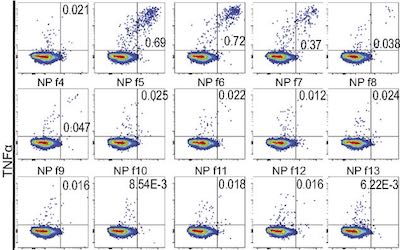VHFC Scientists conducting the first comprehensive study of key immune system cells – collected from West African Ebola survivors – that kill Ebola infected cells have made a surprising discovery that provides important clues to developing effective vaccines against the infection.
The study, which focused on immune system sentries known as killer (CD8+) T cells, showed that nearly all (96 percent) of the Ebola survivors had T cells that responded to viral protein, nucleoprotein on cells expressing Ebola proteins. In contrast, it was surprising that the virus’s outer glycoproteins, presumed to be the main targets for killer T cells, were recognized in a minority (38 percent) of previously infected individuals.
“The whole idea of vaccination is to mimic the immune response that the person makes after they have the infection and get over the infection,” says Michael B. Oldstone, MD, a VHFC researcher at Scripps Research and senior author of a paper reporting the findings, published today in the journal Proceedings of the National Academy of Sciences. The research was supported by the National Institute of Allergy and Infectious Diseases, part of the National Institutes of Health.

